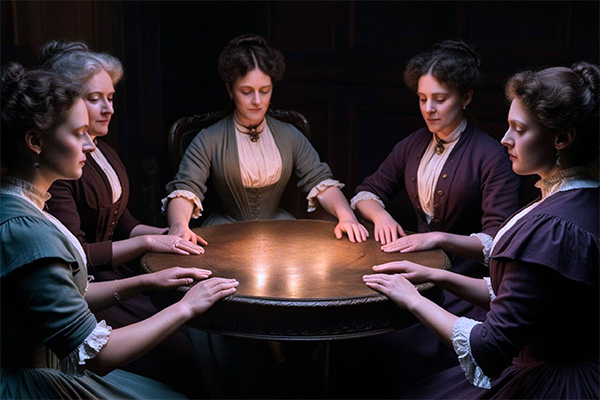supernatural phenomena
Rescue Mediumship Helps Lost Souls Find Peace
 Rescue mediumship work has always held a special place in my heart. From the beginning of my training, I was intrigued by the deeply meaningful work of guiding lost or confused souls toward the light.
Rescue mediumship work has always held a special place in my heart. From the beginning of my training, I was intrigued by the deeply meaningful work of guiding lost or confused souls toward the light.
I was first introduced to the process during the advanced mediumship classes at my spiritualist church. A few times each year, we gathered in meditation circles led by an incredible reverend. She created a safe and sacred space for spirit communication.
The goal of these sessions was simple yet profound: to help earthbound spirits who were unaware that they had passed on, or who were somehow struggling to transition to the afterlife. These souls, often confused and disoriented, needed a gentle nudge (or sometimes a firm push) to find lasting peace on the other side.
Our rescue circle, usually consisting of about eight people, would sit in silence and attune ourselves to the spirit realm. One by one, spirits would come through and speak through one of us. We would hear their voices in our minds, or sometimes even channel them directly, adopting their accents or mannerisms. The reverend guided the conversation by asking questions to uncover the spirit’s identity and story. Who were they? What had happened? What did they remember?
These encounters were deeply moving and often unforgettable. One of the earliest that I remember was a little boy who came through to me. He was hiding under a bed, unaware that he had died in a house fire. The image was vivid: the end of the bed had collapsed, forming a small triangle of protection. We then called his mother in from the spirit world. Together, we gently persuaded the boy to take his mother’s hand and move into the light.
The Miracle Gift Of A Reincarnated Pet
 Do animals reincarnate? As an animal lover and pet owner, I believe they do!
Do animals reincarnate? As an animal lover and pet owner, I believe they do!
John Edward, the famous psychic medium, once told how his dog came to him in a dream after he died. Apparently, the dog told him that he would be the new dog “with the black spot.”
Soon after, he went to a friend’s house who had a litter of puppies. He really bonded with one of the puppies – it followed him everywhere. However, none of the puppies had a black spot? Edward’s wife took pictures of him with the puppy because she also felt the connection. They left without taking any of the puppies.
When the film was developed, there was a black spot on one of the photos! The black spot appeared in the picture over the puppy he had such a special connection with. Edward immediately went back and got his beloved “new” dog.
My friend’s dog, Inky, was all white with an unusual dark spot on his back. He also had a strong personality and would follow her on her daily walk to work until she turned and said, “Inky, go home.” When he passed away at a young age, my friend was devastated. I remember her saying that she lay on the floor for days, crying, curled up in a fetal position.
A few months later, she walked by a pet store. There was a bunny in the store that looked exactly like Inky. It was all white, with the same distinctive ink pattern on its back. My friend adopted the rabbit, who also turned out to have the same personality as Inky. He would follow her on her way to work until she said, “Bunny, go home.” Continue reading




